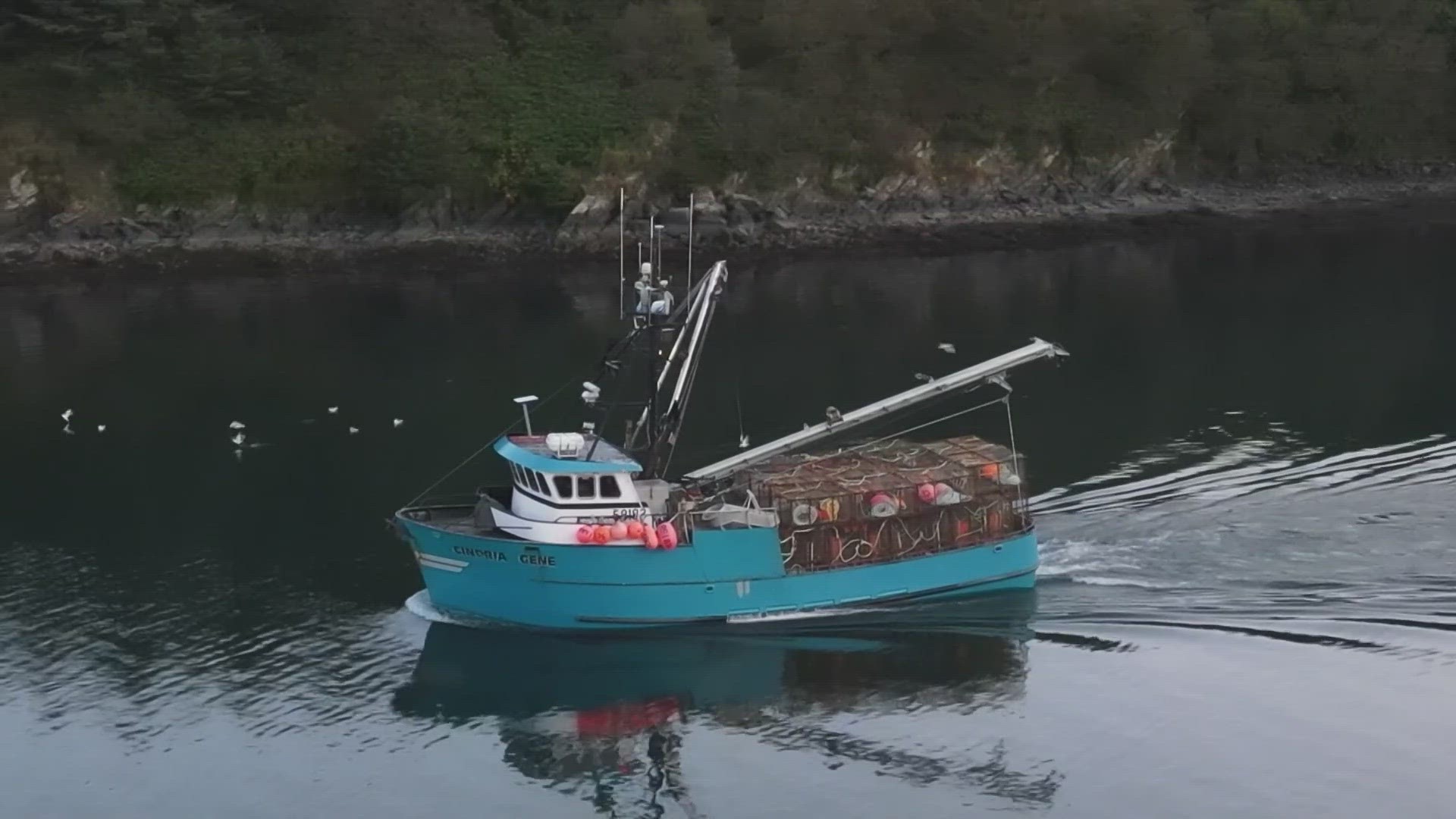ALASKA, USA — Two weeks after the snow crab season was canceled in Alaska's Bering Sea for the second year due to population concerns, scientists have released more details about what they think happened to them.
According to research by the National Oceanic and Atmospheric Administration, 10 billion snow crab vanished from Alaskan waters in the span of three years.
Scientists called it a "population collapse."
Domino effect caused by marine heat wave
The new report by NOAA shows a marine heat wave severely impacted the snow crab population. Scientists don't think the warm water directly killed the crabs, but it was likely a domino effect.
Snow crabs prefer cold water, between 0 and 1 degree Celsius, but 2018 and 2019 brought record-warm temperatures, above 3 degrees Celsius, to the Bering Sea.
The study showed the crabs faced a "triple threat" during the heat wave.
Their metabolisms increased in warmer waters, which meant they needed to eat more food. However, their habitat got smaller, so they had less room to find that food and had to compete against each other to eat.
The vanishing of the snow crab appears to be one of the largest reported losses from a marine heat wave in the world, according to NOAA.
Multiple theories have been ruled out
Researchers looked for evidence that the crabs could have migrated to another location. They ruled this out due to the fact that surrounding waters have not seen an increase in crabs.
Some believed the mass fatality event could have been caused by overfishing. However, most of the crabs that went missing were young and therefore too small for commercial fishing.
What happens next?
Change could be coming, but it may take some time.
Data from the study shows water temperatures are almost back to normal for the Bering Sea, but that does not mean it will stay that way.
"I do think for an arctic species, the future is uncertain," NOAA Researcher Erin Fedeway said. "I'm an optimist and I can only hope the conditions continue to support viable populations of snow crabs."
Researchers are seeing an increase in juvenile crabs now, but it could take years for them to mature to a catchable size. Scientists hope the crabbing season closure will allow the juvenile crabs to adapt and grow.
Watch KING 5's Crabbing in Crisis playlist:

